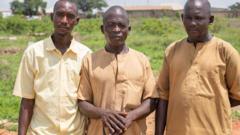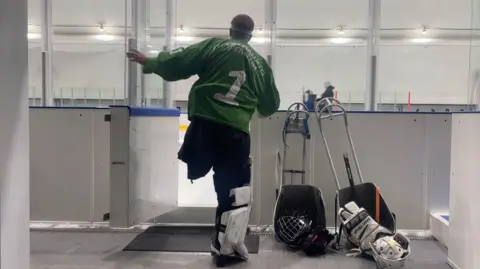For over 50 years, the Abdullahi family has taken on the solemn responsibility of caring for the Tudun Wada Cemetery in Kaduna, Nigeria, ensuring that the final resting place for many is handled with respect and dedication. Initially functioning as unpaid volunteers, they primarily relied on small donations from families in mourning, but a recent shift in local governance promises some financial relief for their hard work.
The cemetery itself, established a century ago, serves as the final resting place for the Muslim community in Kaduna. Ibrahim and Adamu Abdullahi began the family's legacy in the 1970s, emphasizing the importance of service to God over material rewards. Their sons, now custodians of the cemetery, continue this tradition, motivated by a strong sense of duty.
Magaji Abdullahi, the eldest son, oversees the day-to-day operations alongside his cousins Abdullahi and Aliyu. Despite facing the physically demanding task of digging graves in Kaduna's extreme heat and the stress surrounding communal tensions, especially during religious conflicts, the cousins maintain a resolute spirit. For them, every burial is not merely a task but a meaningful connection with their community, where funerals typically take place within hours of a person's passing.
Their responsibilities include washing and preparing bodies according to Islamic customs, measuring graves, and digging with precision. They often work tirelessly, sometimes digging multiple graves in a single day. Despite the hardship, the importance of their service has not gone unnoticed by the local council, which recently decided to formally compensate the Abdullahi family for their vital contributions.
The ongoing financial support, albeit below minimum wage, marks a significant change for the family, who previously relied on the goodwill of those they served. With new initiatives from the local chairman, including repairs and improved facilities for preparations, the hope is that the graveyard can be better maintained while honoring the memories of the deceased. This newfound support signifies a promising future for both the Abdullahi family and the community they diligently serve, ensuring that their legacy continues for generations to come.






















